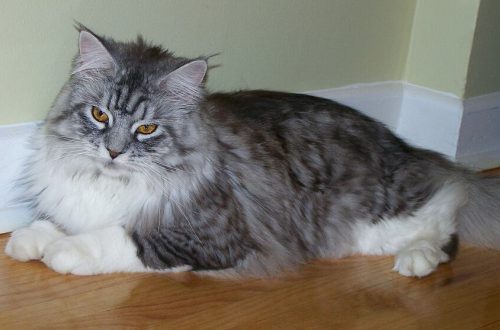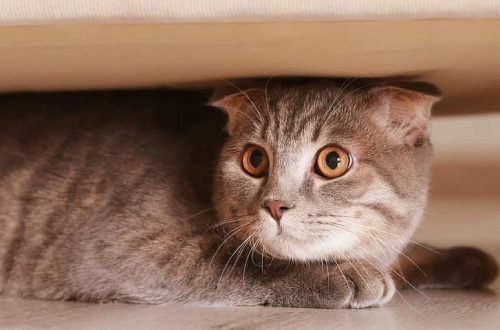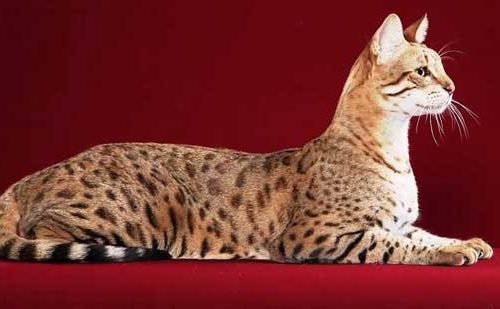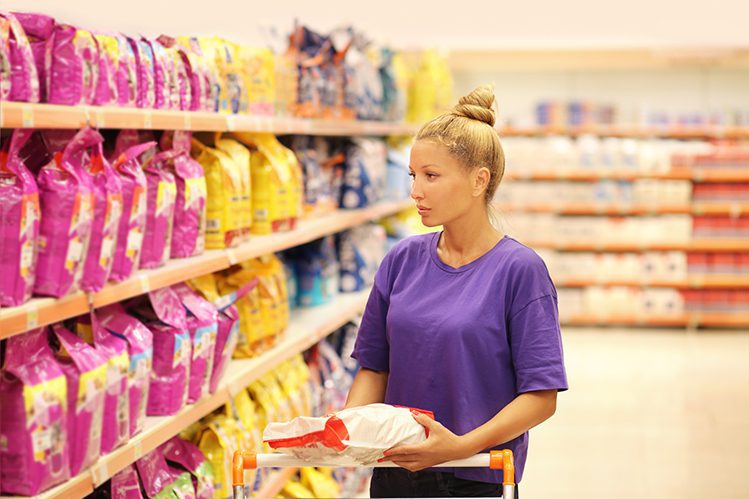
Should potatoes be in dog and cat food?
Potatoes in dog and cat food are controversial. Today in our article we will talk about what potatoes bring to the feed – benefit or harm.
Potatoes are not included in the black list of foods that dogs and cats should not be given. From chocolate, grapes, boiled bones, alcohol, hard cheese, smoked meats, our four-legged friends can become ill. But what about vegetables?
Beet pulp and tomatoes are added to complete feeds. They help our pet get dietary fiber to improve the balance of intestinal microflora. Vegetables are increasingly added to food as additional ingredients that saturate the body with useful substances.
Potatoes in the composition of food for dogs and cats began to appear relatively recently. Therefore, many look at this product with suspicion. You can find discussions of food containing potatoes on cat and dog owner forums. Some write that potatoes are not digestible in their pets. Others believe that this is one of the possible sources of carbohydrates for four-legged friends, no worse than rice, wheat.
By default, you should not be afraid of potatoes in the composition of the feed. If your pet does not have an individual reaction to potatoes, and the food is of high quality, then such a diet may well be suitable. The quality of potatoes, their quantity in the feed and the method of processing are important.
When choosing a feed, it is important to focus on its composition. In the first place should be high-quality selected meat. The basis of the feed is the first five ingredients. Usually potatoes are not included in them, but in specialized diets, potatoes can be in 2nd or 3rd place.

Potatoes in the diet for pets can be present in different forms. Fresh potatoes are clean, whole potato tubers, either skinned or peeled. We emphasize that in the English version, the ingredient is often simply denoted potato. The short wording “potato” is also found. Confuses that the type and quality of the ingredient is not clear.
The next type is dried, dehydrated potatoes, potato flakes. There are many names, but the essence is one. It is a mixture of tubers and skins that has been steam-dried and ground. Dried potatoes are slightly worse than whole potatoes, as some of the nutrients are lost due to processing. But dried potatoes are more valuable and healthier than potato flour.
Potato flour in the English version is called dried potato products. It is a mixture of tubers and potato products. In high-quality feed, potato flour is almost never used due to the low content of nutrients. If the English name says potato flour, we are talking about boiled, dried, crushed substandard potato tubers. It is better if such an ingredient is present in the feed in small quantities as a thickener.
Potato protein, potato proteins or potato protein concentrate are made from tubers and processed potato products. It is an inexpensive source of vegetable protein and can be an alternative to rice protein or corn gluten in feed. Potato protein remains when the starch grains are removed from the crushed tubers.
Potato starch is made from starch grains. It is a neutral tasting white powder with no nutritional value for dogs and cats. Potato starch has sticky properties that help turn the food into neat, beautiful granules. When choosing a feed, it is advisable to focus on products without potato starch.
Sometimes it is difficult to guess from the wording how high-quality raw materials were used in production. It is better to choose food from manufacturers that specialize in pet food. There is no guarantee that the human food manufacturer at the dog food subsidiary will not use leftover potatoes from a batch of chips.
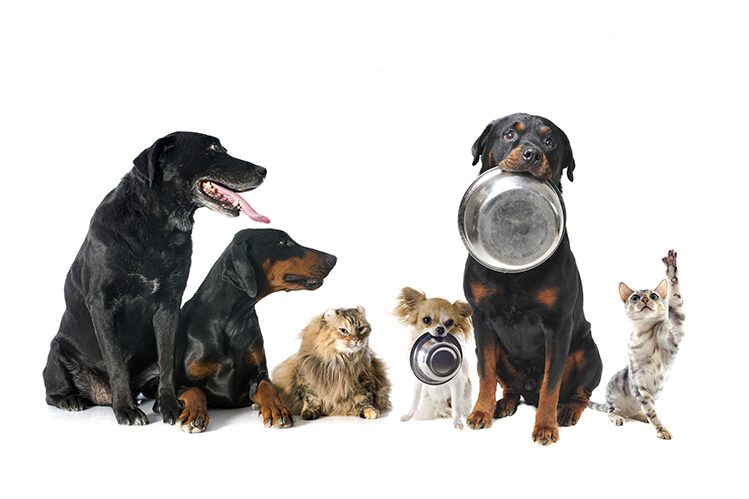
Potatoes are added to feed as a source of carbohydrates and vegetable protein. Choosing dry food with potatoes for dogs or cats can solve the problem of a pet’s allergy to grains. Wheat, a strong allergen, is most commonly used in cereal-based foods. Potatoes serve as a binder in the feed, since it is impossible to create it only from animal protein (for example, meat and fish).
A contraindication to the use of cat food with potatoes may be individual intolerance, allergies. In reasonable quantities, potatoes will not harm the health of your dog or cat. Nutrition should be balanced, potatoes in the feed will help meet the needs for carbohydrates, vegetable protein, fiber, B vitamins, potassium and vitamin C.
Whatever opinion you have about the presence of potatoes in the diet of dogs and cats, do not rush to experiment. Discuss the diet with a veterinary nutritionist. We wish health and delicious life to your pets!



